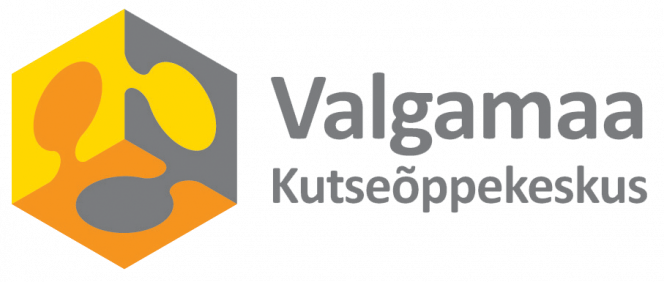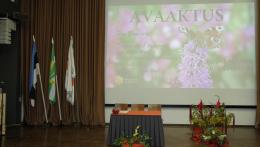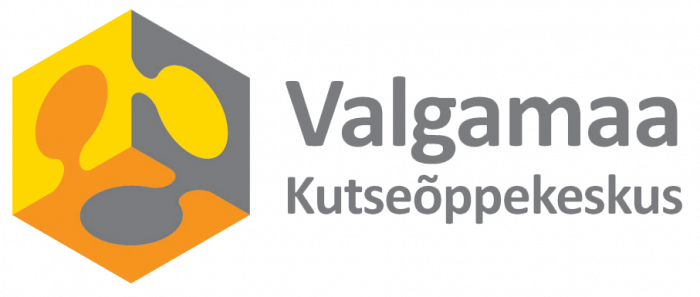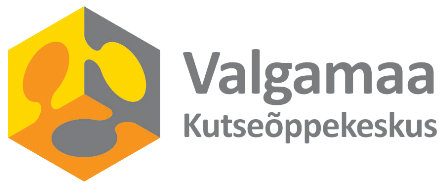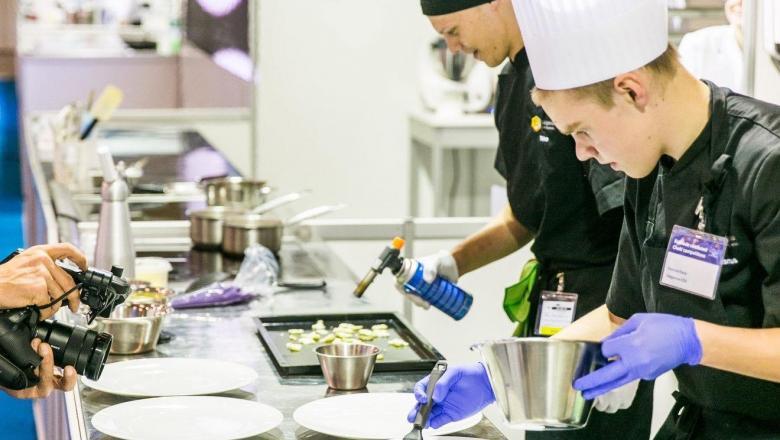|
Type of study |
Form of study |
Premise to get started |
Study time |
Vocational education,
Level 4 |
stationary,
day study |
basic education |
180 EKAP, 3y |
The chefs' field of work is wide, because tasty and healthy food has always been included in the price.
Chefs work in various accommodation and catering establishments, catering for educational establishments, staff catering companies, restaurants, cafes, bistros, catering establishments throughout the European Union.
The chef handles raw food using a variety of cold and heat processing techniques and prepares and serves food according to instructions.
The work of a cook requires an economic way of thinking, including the ability to handle food raw materials and food economically.
The nature of the work requires the ability to organize work independently and rationally, plan time and, if necessary, supervise the assistant cook.
The chef of the Valgamaa Vocational School always does his best, regardless of whether he prepares dishes in a restaurant, school canteen or in his home kitchen.
A good chef is quick, creative, eager to learn and has a higher than average stress tolerance. Willingness and ability to work in a team and willingness to work evenings and weekends required.
The profession requires manual dexterity, a good sense of taste, quick reaction, the ability to allocate attention to several tasks at the same time, very good physical and mental endurance, and also good communication skills.
The ability to work in a team, so that in the future there will be the ability to lead yourself and others, and uncompromising cleanliness.
Admission conditions
Submitting an application, passing an interview and proving the required level of education.
Core study modules
Foundations of catering industry and studies
Catering
Menu planning
Practical work in the large kitchen
Menu preparation and calculation
Cooking
Practical work in a restaurant
Practice
Study path and work in a changing environment
Elective discussion modules
Catering service
Estonian kitchen
Self-expression
Professional foreign language (English)
Special catering
Preparation for the professional exam
Participation in an entrepreneurship project
Graphic design in professional work
Grilling and BBQ
Beverage education
Non-alcoholic beverages
A course in narrow mathematics
Professional computer training in the field of accommodation and catering
Bakery and pastry work
Party service
National and regional cuisines
Organization of restaurant work
Restaurant work practice
National defense education
Room and table design, including the basics of color teaching and flower arrangement
Organization of large kitchen work
Large kitchen work practice
Food photography
Outdoor catering
Developing study skills
The acquisition of the specialty takes place at school and in an internship at the company. It is possible to complete an internship in Estonia or an EU member state by applying for the Erasmus+ internship program.
To work in kitchens, the learner must have personal: chef clothes (jacket, trousers, apron and hat) and chef's shoes.
Graduation
The studies are considered completed when the student has achieved the learning outcomes of the cooking curriculum at least at the threshold level, completed the company internship and passed the professional exam.
Professional qualification to be acquired during studies:
Upon achieving the learning outcomes of the curriculum in full, the student will take the professional qualification exam "Chef, EKR level 4" at the end of the studies. A student studying the curriculum of vocational secondary education, who completes the learning outcomes of general subjects in full, will receive vocational secondary education at the end of his studies.
Further education opportunities (secondary education required):
Senior Chef, level 5;
Tourism organizer;
Food technologist;
Vocational teacher
Curriculum
